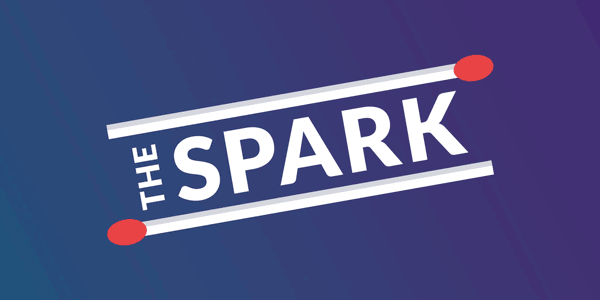Talking in (B2B Effectiveness) CodeIn the B2C-dominated social media landscape, LinkedIn has long-been a mainstay for B2B brands. Now they’ve made it official with the release of what some might consider a B2B Bible for marketers. The B2B Effectiveness Code analyzes more than 10 years of business research to determine the most successful methods of B2B marketing. The advice was intelligent (and endless) — so we’re calling out a few indispensable insights:
TL;DR: The B2B Effectiveness Code (from LinkedIn’s B2B Institute) assesses the creativity and effectiveness of business campaigns using more than 10 years of marketing data.
TikTok: Domain DominationIt’s really true — TikTok surpassed Google as the most popular domain globally. Apparently, the world’s largest search engine has nothing on the king of social media.
So what does this mean for future marketing?
SEO-minded content marketers have long-focused much of their efforts on Google website ranking (which is still an important factor), but the rise of TikTok might make you rethink your content strategy.
People are turning toward video content for entertainment and information more than ever before (and there's a how-to video for virtually everything on TikTok). The platform is projected to reach 1.5 billion monthly active users by the end of the year. So, continue to be on the lookout for segments of your target audiences beginning to embrace TikTok.
If you have a growing community on TikTok, consider redistributing some marketing investments to short video. As the app continues to grow exponentially, the right TikTok strategy could drive more brand engagement than being on the first page of search results. So, prioritizing video content in your digital marketing strategy is a smart move.
But don’t forget that Google is still an essential search engine — the top spot frequently fluctuates between the two domains.
TL;DR: TikTok recently surpassed Google as the most popular global domain. Marketers should consider major audience shifts when creating content and continue to prioritize short video.
What Lit Us UpMakeup (Life After) LoveThe key to a successful brand campaign? Cher.
MAC Cosmetics enlisted the music icon, among other prominent entertainers and influencers, for its #MACChallengeAccepted effort across social media, which demonstrates the lasting quality of MAC’s products while confronting societal beauty standards. To really drive the products’ staying power home, influencers will assess the cosmetics company’s attributes in creative ways — like skydiver Maja Kuczynska, who will demonstrate the makeup’s weightlessness by jumping out of a plane. This campaign really takes off from there, encouraging makeup-lovers to respond on social media with their own daring approaches to put MAC’s high-performance products to the test.
Cher? Skydiving? Go big or go home, MAC.
This is the cosmetic giant’s first brand-focused social campaign in more than three years (as opposed to product promotion), and it will run across Facebook, Instagram, Snapchat, TikTok, and YouTube. By tapping into various influencers (with anywhere from 200,000 to 2 million followers) and engaging customers in a digital-first trend like a makeup challenge, MAC is broadening its social presence while more closely connecting with its key audiences. The participatory challenge presents ample opportunities for makeup artists to spread creativity with user-generated content. With an omnichannel approach and a little bit of star power, MAC brings the marketing glamour in this brand campaign.
TL;DR: MAC Cosmetics utilized strategic influencer marketing, an omnichannel approach, participation-based trends, and Cher, in its alluring social movement. (Was this email forwarded to you? Sign up here.)
|
-1.png?upscale=true&width=346&upscale=true&name=Tier%20One%20logo_color%20(1)-1.png)


